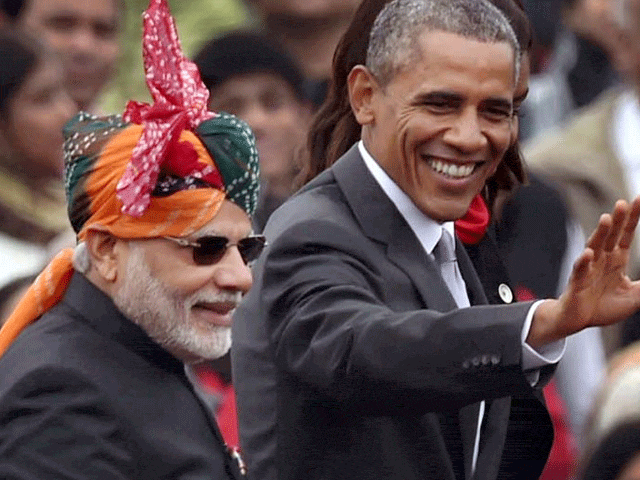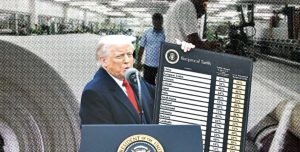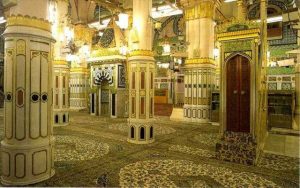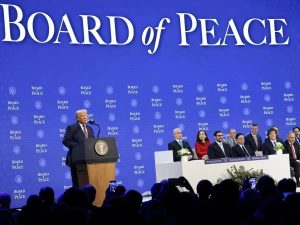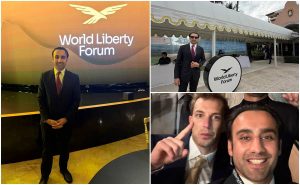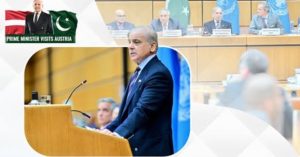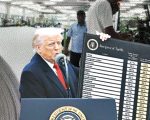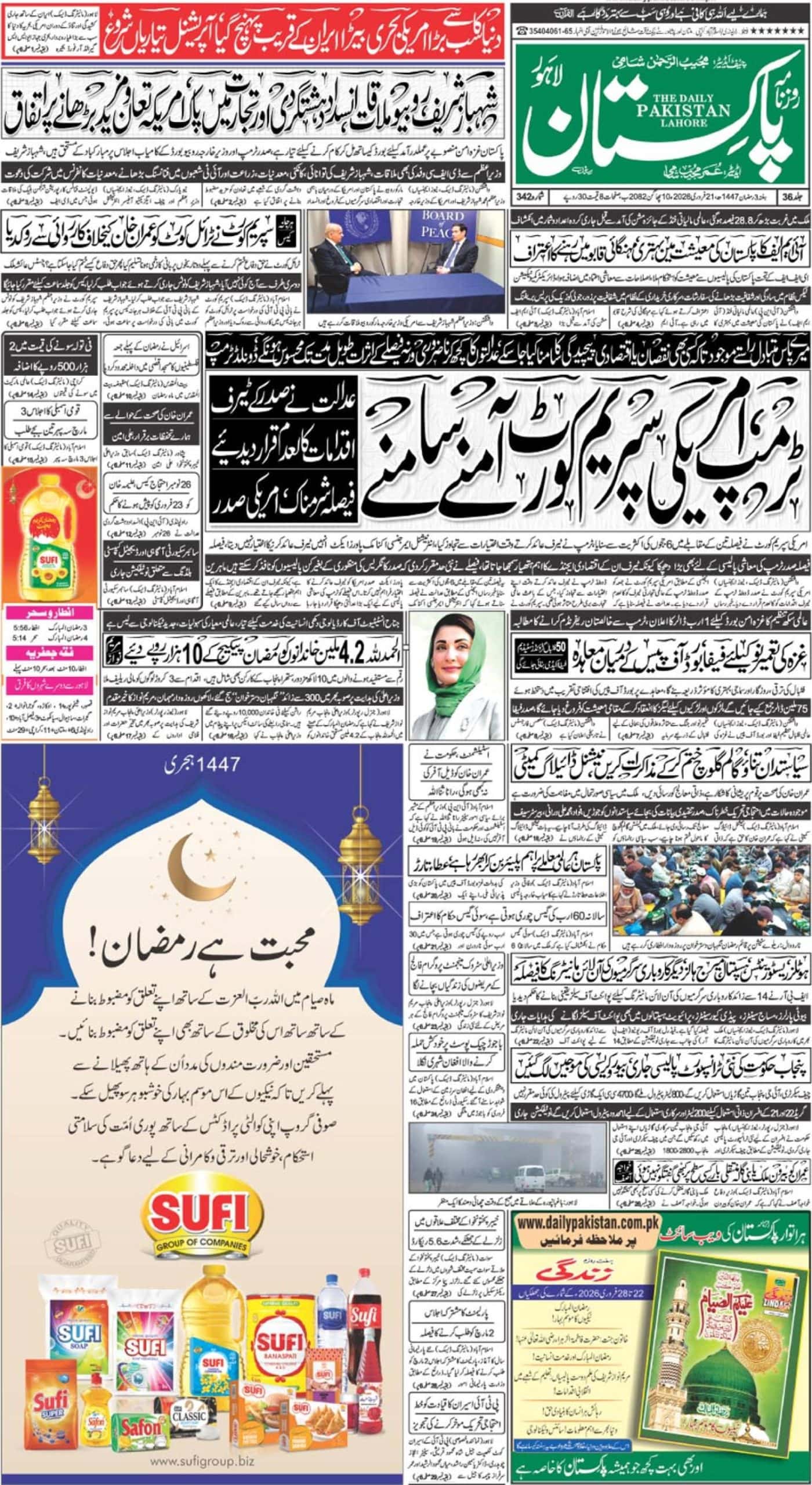WASHINGTON DC (Web Desk) – President Barack Obama welcomes India’s Prime Minister Narendra Modi to the White House for the second time in as many years, a low-key nod to improved ties between the world’s biggest democracies.
That the pair would get along was not a given. When Obama came to office in 2009, the Hindu nationalist was banned from entering the United States over his role in anti-Muslim riots.
But the ban was lifted after Modi was sworn into office in May 2014 and he has since made four US visits — two to Washington — while Obama has traveled to India twice.
Meanwhile, a New York Times report describes the bond between the two as an “unlikely friendship”.
“There are few relationships between Obama and another world leader more unlikely than the one he has with Modi,” the report said.
It added that the two largest democracies in the world have “compelling reasons” to find common cause.
For example, the US is encouraging India’s rise as a regional giant as part of Obama’s so-called “pivot to Asia” policy and counter China’s global economic and military superpower ambitions.
For India, the US bond, according to the Times, is needed to “accelerate its economy with an injection of investment from American companies”.
But the relationship between Modi and Obama is still “unlikely”.
The Times said that Obama had made the protection of minorities a central pillar of his life because he believed that “criticism and dissent were core tenets of democracy”.
“But Modi, by contrast, spent much of his life rising through the ranks of the Rashtriya Swayamsevak Sangh, a right-wing paramilitary organization that campaigns forcefully for India’s Hindu majority,” it said, recalling the Gujarat religious riots that saw some 1,000 people, most of them Muslims, killed in 2002 when Modi was the chief minister of the western Indian state.
The 2002 Gujarat carnage is again in the spotlight because a court only last week convicted 24 people for massacring 69 Muslims in mayhem in Ahmedabad’s Gulberg Housing society.
The Times, citing a Human Rights Watch report, said that the BJP government in India had “increasingly used the country’s broad and vague laws restricting free speech to stifle dissent”.
The newspaper also raised the issue of shutting down non-governmental organizations, such as Greenpeace – a global aid group that has offices in over 40 countries.
On a personal front, The Times said, both leaders “avoid the socializing common in their capitals”.
“Obama is a doting father and dutiful husband who maintains close bonds with his childhood friends…Modi abandoned his arranged marriage decades ago and has no children or any public friendships.”
The newspaper, however, drew some “similarities that extend beyond political beliefs” between the two.
Both men rose from modest circumstances, had difficult relationships with their fathers and were widely considered transformational figures when elected.
“Modi’s humble origins, largely corruption-free government and intense focus on winning foreign investment are sharp breaks from his predecessor,” it said.
“And parts of Modi’s political operation, in particular its effective use of social media, were based on Obama’s model.”

